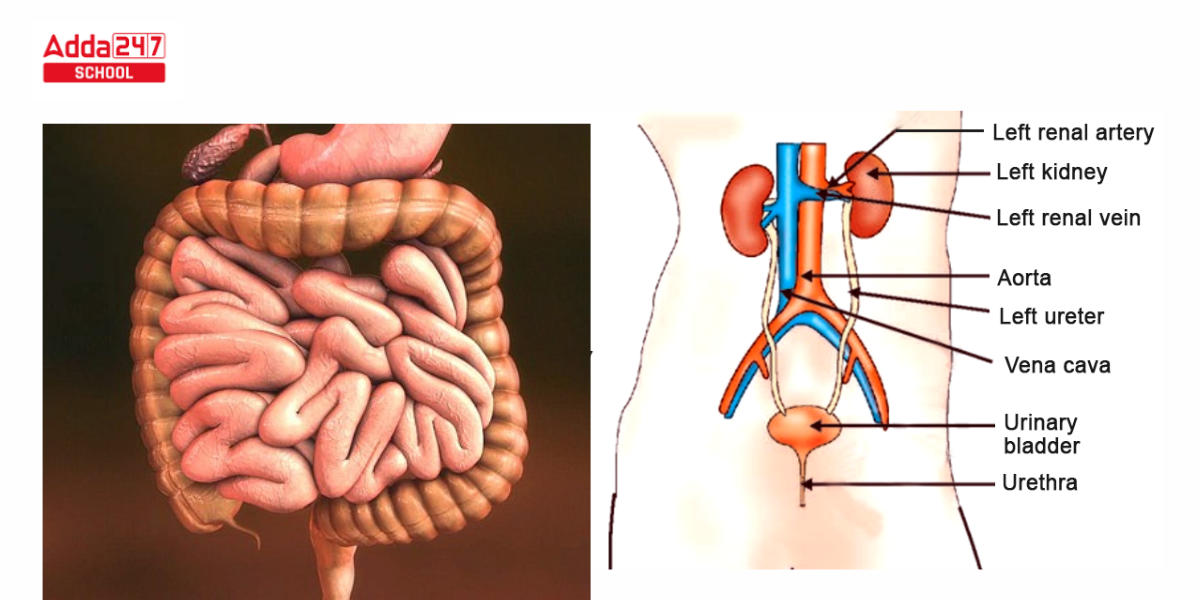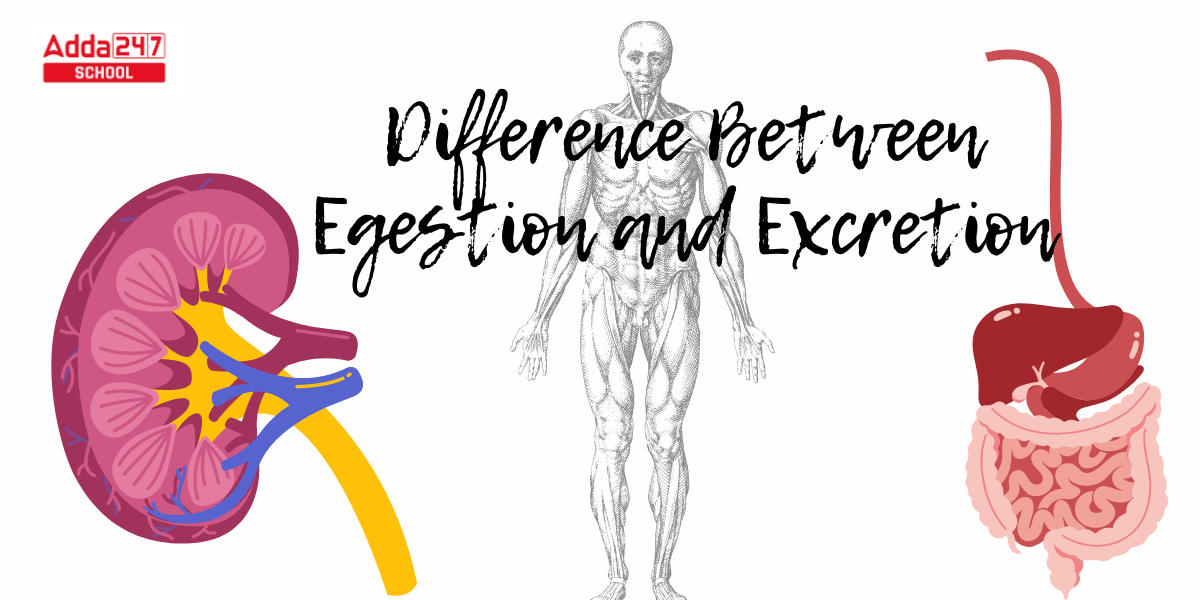Table of Contents
Difference Between Egestion and Excretion: Egestion and excretion are two highly crucial processes in the organism for living a healthy life. A living entity performs a variety of metabolic activities to support its life. To maintain balance, waste materials are eliminated from the body by egestion and excretion. To survive, the creature, whether plant or animal, must absorb or prepare nutrients and excrete unnecessary waste via excretion and egestion. It is the most fundamental process of survival in an ecosystem. The key difference between Egestion and Excretion is that Egestion is an act through which undigested materials are removed from the digestive process. Excretion, on the other hand, is the process of eliminating metabolic waste products.
Difference Between Egestion and Excretion
During the metabolic process, many by-products are produced inside the organ system. This system must be cleared in order to function properly. A plant or animal must eliminate such by-products in order to avoid system toxicity and live in the environment. To comprehend the distinction between excretion and egestion, you must first understand the basic definitions of egestion and excretion.
Also Read, Excretion in Humans, Process, Diagram, System, Function
What is Egestion?
The mechanism by which an organism excretes a metabolic end-product via numerous cellular and organ processes is known as excretion. As a result, when the human body eats nutrients from food, the nutrients are transformed into various compounds and toxins known as wastes. Excess nitrogenous substances and urea, excess carbon dioxide and uric acid, and other byproducts of cellular metabolism are examples of these wastes. These toxic substances and waste are removed from the body by excretory organs and expelled through urine, perspiration, and faeces.

What is Excretion?
Egestion, on the other hand, refers to the removal of undigested food from an animal’s digestive tract. The stomach, small intestine, and colon are the primary components of this system. The liver, kidneys, and other glands, as well as exocrine and endocrine glands, all play a role in digestion. It is analogous to the way of eliminating waste products from a metabolic process, but it is only seen in animals and requires the digestive system.
Difference Between Egestion and Excretion in Tabular Form
Each organ in the human body has either a primary or a specialised function in excretion. The kidneys, for example, are specialised excretory organs that remove wastes from the blood and body fluids. The kidney’s principal role is to manage the body’s fluid and mineral composition.
The expulsion of food and water from the gastrointestinal tract is known as egestion. This means that wastes are eliminated after the digestive system consumes food and drink. The digestive system, which is located inside the abdominal cavity, does this. Here is a table that illustrates 7 distinctions between excretion and egestion.
| Difference Between Egestion and Excretion | ||
| Subject | Egestion | Excretion |
| Definition | The method involves removing undigested trash and food from the organism’s body. | The method comprises removing waste from the cells of an organism. |
| Substance | Discharged items include undigested food and other harmful byproducts of digestion. | Metabolic wastes that include carbon dioxide or oxygen are discharged. |
| Nature of substance | Solid or semisolid waste is frequently ingested. | Excretion typically involves the elimination of liquid or soluble waste. |
| Body part used | Egestion is done mostly through the anus, or mouth. (Animals such as jellyfish use their mouths to consume as well as release waste.) | For excretion, the urethra, nose, and skin are all utilized. |
| Frequency | Egestion occurs after digestion on a regular basis to remove undigested or indigestible material. | Excretion is a constant process that aids in the prevention of hazardous waste accumulation. |
| consequences | Constipation, diarrhoea, and digestive difficulties are among the problems. | Imbalances in the body might result in renal failure, toxicity, or illness. |
| Example | Only animals go through the process of digestion. | Excretion is a natural mechanism in both plants and mammals. |
Also Read, Human Digestive System, Diagram, Parts and Functions
Difference Between Egestion and Excretion in Points
Egestion is the process through which undigested food is expelled from the animal’s body. Excretion is the process of eliminating waste materials produced in animal and plant cells.
- Undigested food is removed during egestion, whereas metabolic waste is expelled during excretion.
- The substance ejected during the egestion process was not absorbed by the cells. The stuff ejected during the excretion process has gone through the cells. When you eat, you produce waste products that are generally expelled from the body, such as mucus, uric acid, porphyrins, cholesterol, and so on. To excrete these waste products from your body, your body employs a number of procedures. It makes use of the kidneys, which eliminate waste products such as uric acid.
- Eating occurs through the mouth or anus in multicellular animals. Humans do this via faeces, which are your stools. Stools are distinct from urine, which is excreted by your kidneys, and from stool, which is excreted by your stomach. Mucus, uric acid, protein, lipids, and water are among the waste items found in the stools. Your stools are composed of dead cells, blood, and other bodily waste items. and excretion takes place through the nose/mouth, skin, and urethra.
- Egestion occurs only in animals, whereas excretion occurs in both plants and animals.



 VITEEE Admit Card 2025 Out Today, Downlo...
VITEEE Admit Card 2025 Out Today, Downlo...
 NEET Organic Chemistry Syllabus 2025, Ch...
NEET Organic Chemistry Syllabus 2025, Ch...
 NTA NEET Exam Date 2025 OUT, Exam Timing...
NTA NEET Exam Date 2025 OUT, Exam Timing...










